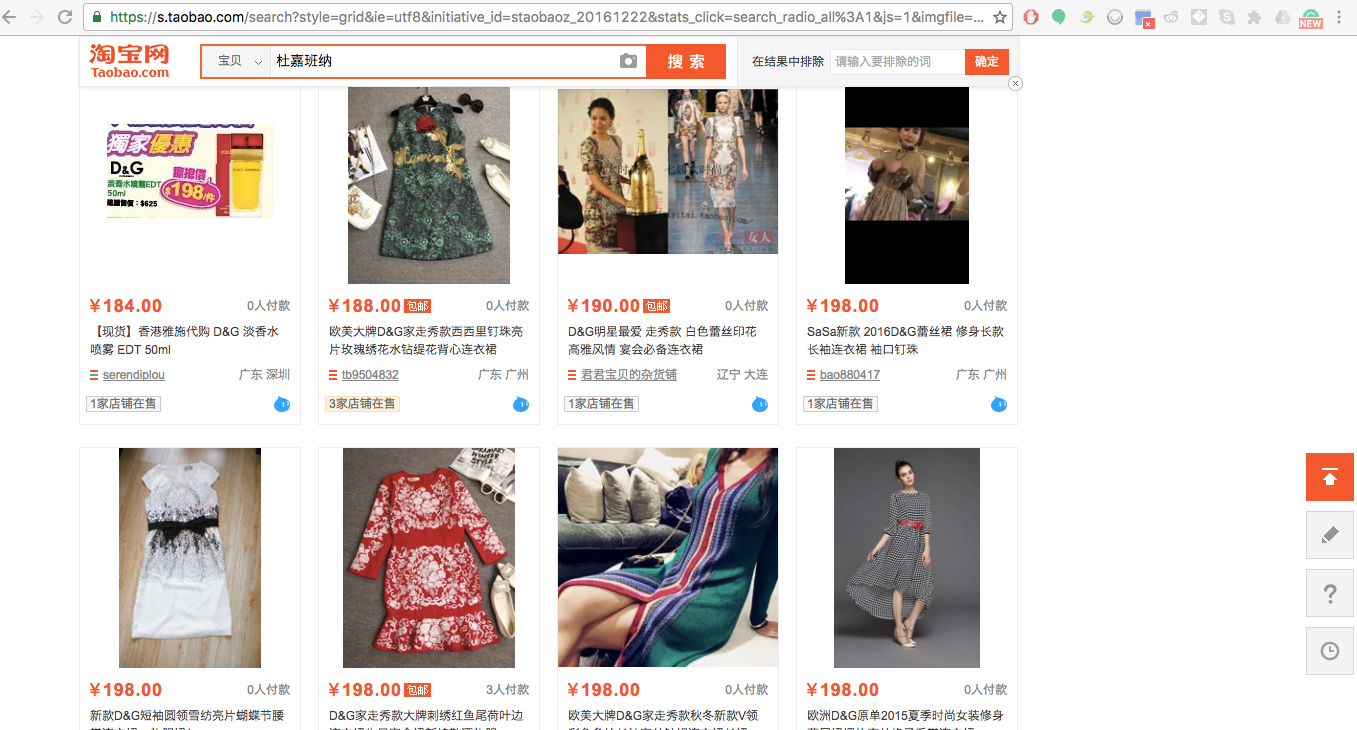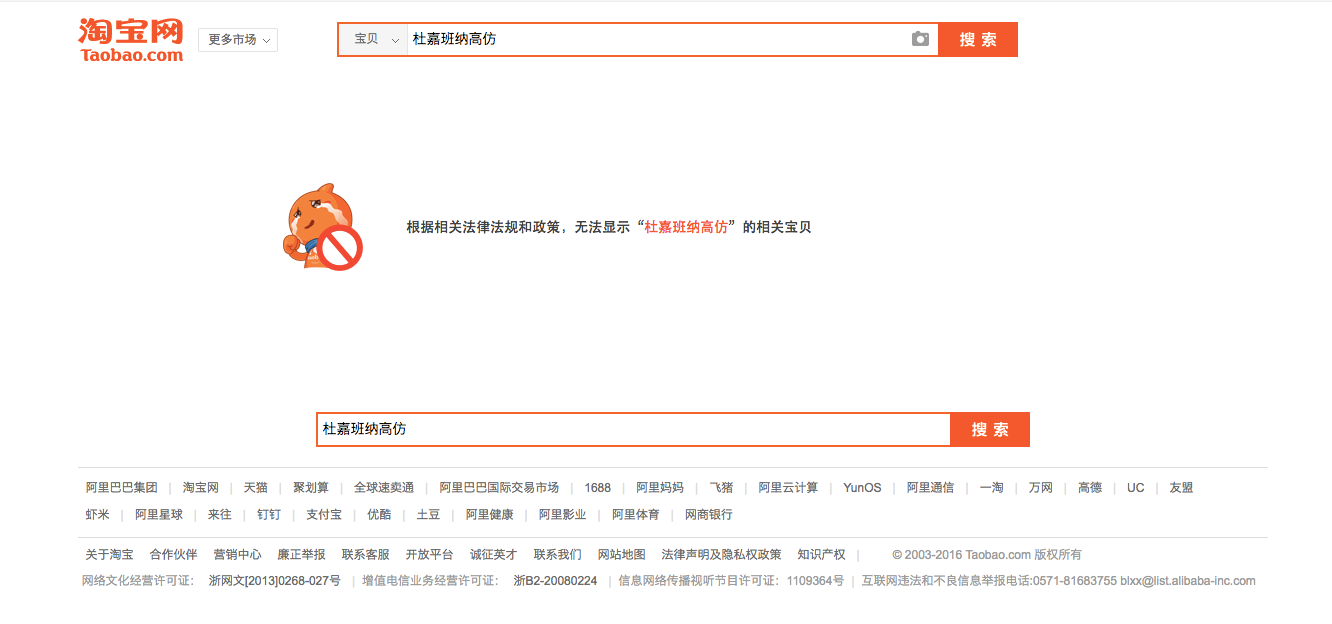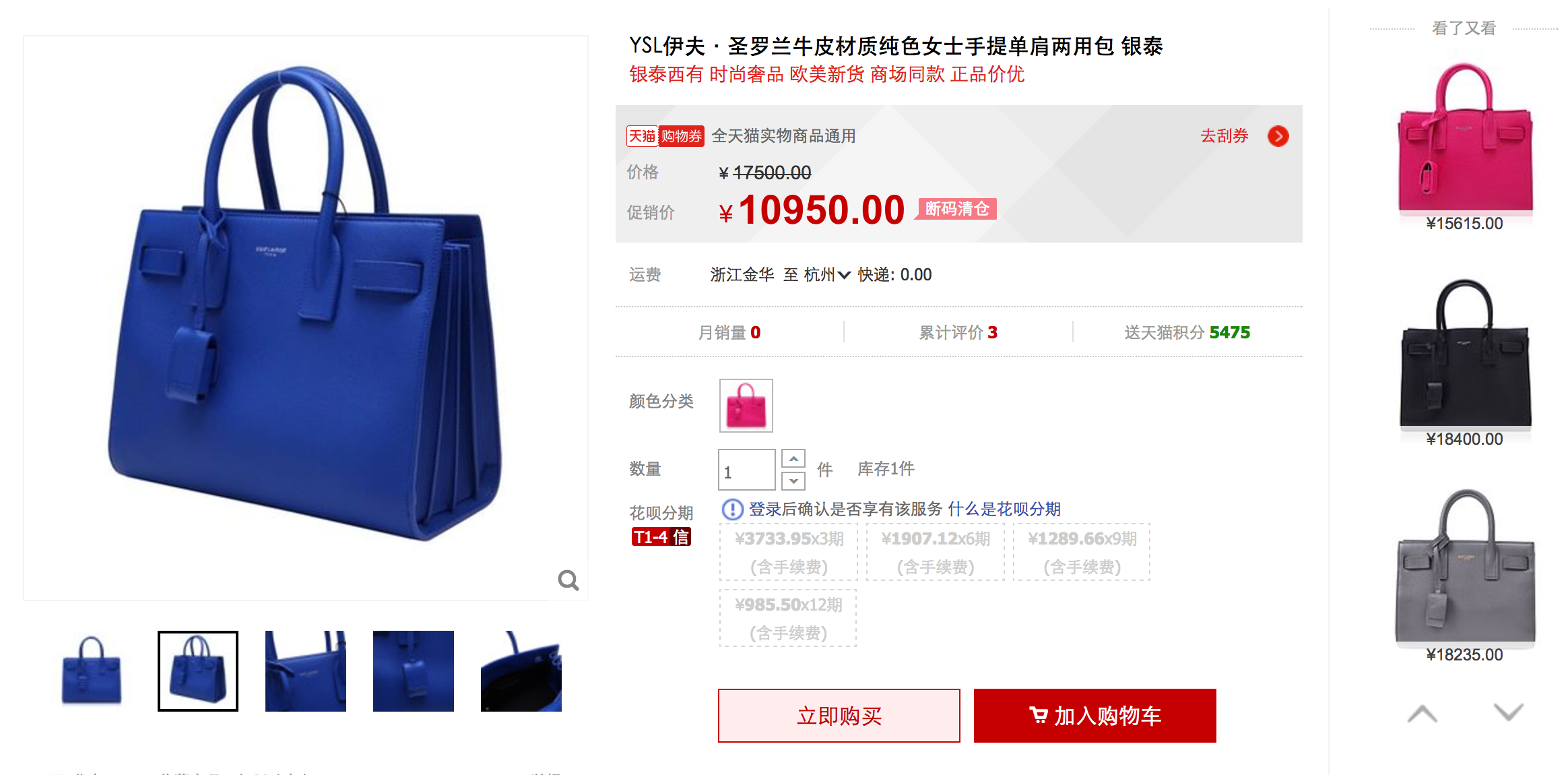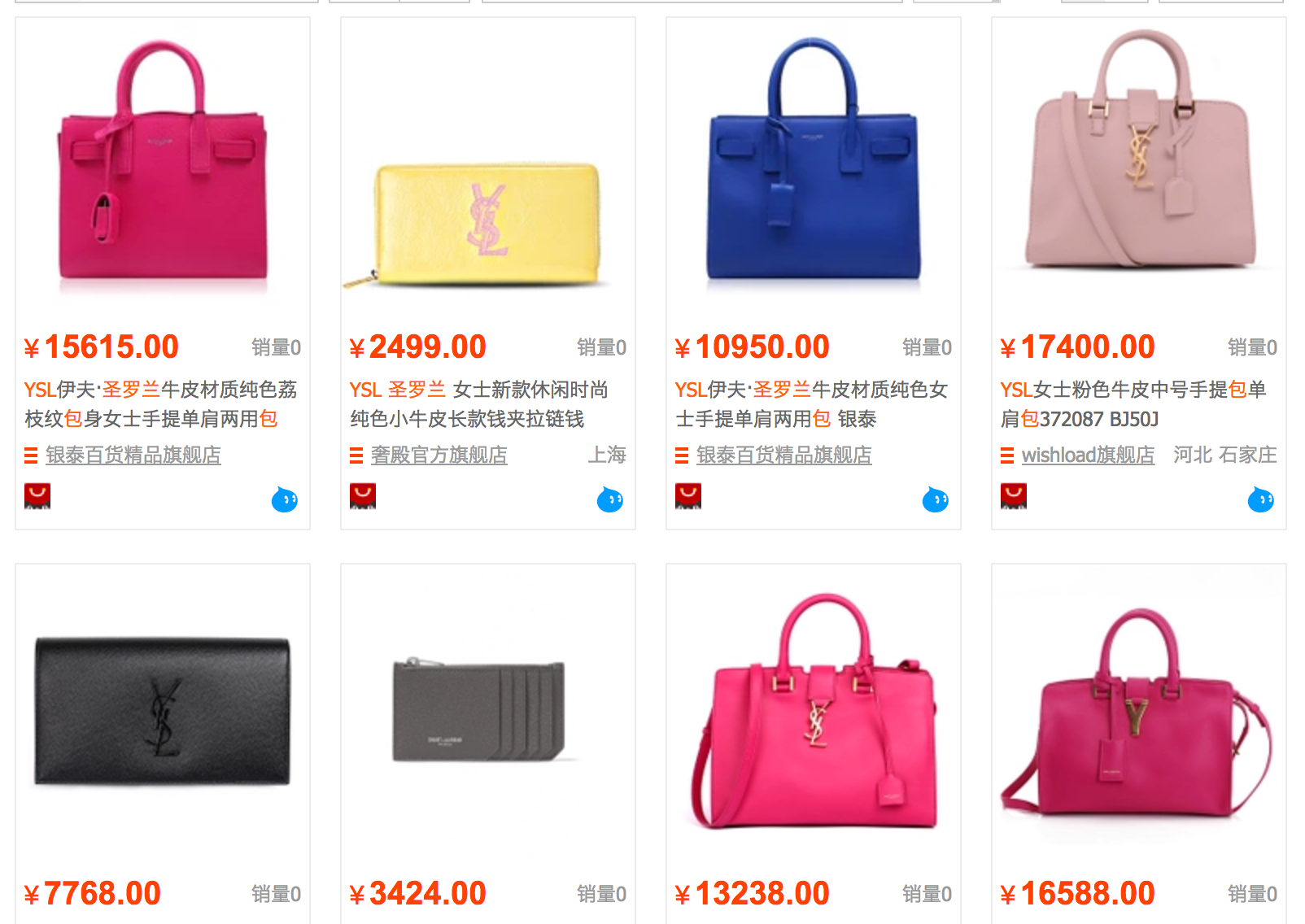Alibaba’s efforts to make the case that it’s doing everything it can to fight counterfeits on its platforms hit a setback yesterday when the U.S. Office of the Trade Representative (USTR) put Taobao back on its “Notorious Markets” blacklist for counterfeits after the company managed to stay off the list for four years.
The list is aimed at highlighting “prominent online and physical marketplaces that reportedly engage in and facilitate substantial copyright piracy and trademark counterfeiting.” Alibaba’s Taobao, which was previously on the list and removed four years ago, was added again in 2016 “due to the large volume of allegedly counterfeit and pirated goods available and the challenges right holders experience in removing and preventing illicit sales and offers of such goods,” according to the report.
The report argues that trademark holders in the United States and internationally have continued to report “serious challenges” when it comes to reducing “high levels of counterfeit and pirated goods.” While Alibaba has implemented a reporting and takedown program that it expanded this summer, the report says that brands’ attempts to report infringement are “refused inconsistently,” with denials of takedown featuring “little to no justification” and error messages in the takedown system. In addition, there is “pertinent” information not translated from Chinese for foreign brands.
Alibaba fired back in statement by group president Michael Evans, who expressed his disappointment in the decision and called it “unreasonable,” arguing that Alibaba is “far more effective and advanced in IPR protection than when the USTR took us off the list four years ago.” He stated that the number of counterfeit items removed doubled from 2015 to 2016, and that more than 100,000 brands are currently listed on Alibaba’s platforms.
He also says that the “decision leads us to question whether the USTR acted based on the actual facts or was influenced by the current political climate. Nevertheless, the decision sends the wrong message and is inconsistent with the effective collaborative approach we have taken with brands and governments around the world in our fight against counterfeiting.” Alibaba claimed that it had removed 380 million product listings and closed around 180,000 shops selling fakes on Taobao the 12 months ending August 2016.

A quick search of Taobao for popular items such as Louis Vuitton and YSL handbags finds that the typical search term gaofang (高仿), meaning "high-quality imitations" appears to be blocked as performing a search brings up no results. In addition, it's harder to find obvious, cheap fakes than it was several months ago, but not impossible, as some counterfeit Dolce & Gabbana dresses popped up for around RMB190 (about US$27).

But a far trickier category is items claiming to be daigou items being sold at a price similar to real items. For example, many YSL Sac De Jour handbags listed claim to be real and tend to say that the items were "either authorized or purchased from a legitimate supplier." The statements that they are authorized are false as no luxury brands authorize Taobao sellers, causing questions about their authenticity. There has been a problem on Taobao with sellers claiming to be daigou and tricking buyers into paying a full price for fakes, but the site does also have many gray market sellers that can entice buyers into taking a chance on Taobao to avoid high domestic prices. Buyers getting tricked into paying nearly full price are a major headache for brands, which are losing customers that likely could have afforded to pay for the item.

The decision to add Taobao back on the USTR list was made under pressure from groups like the American Apparel and Footwear Association (AAFA) and Trademark Working Group. It comes at the end of a year of controversies for Alibaba, including backlash to its admission to the International AntiCounterfeiting Coalition as well as a statement by Jack Ma that “fake” luxury goods were produced in the same factories as real ones and had quality that was just as good or better.
The report acknowledges Alibaba’s efforts to fight counterfeits, praising its offices set up to fight counterfeits and appointment of experienced officers, as well as the development of new technology to fight fakes and its implementation of “Good Faith Program.”
But the report claims these aren’t entirely effective, saying stringent regulations mean the Good Faith Program “reportedly remains out of reach for the vast majority of right holders, particularly SMEs, due to stringent eligibility criteria that must be met and maintained over a period of time.” It says that current levels of reported counterfeiting are “unacceptably high.”
To get off the list, it recommends that Alibaba simplify the process for brands to report items for takedown, make the takedown procedure more readily available, and move more quickly at taking down items and issuing penalties.
Yiling Pan contributed to research for this report.
